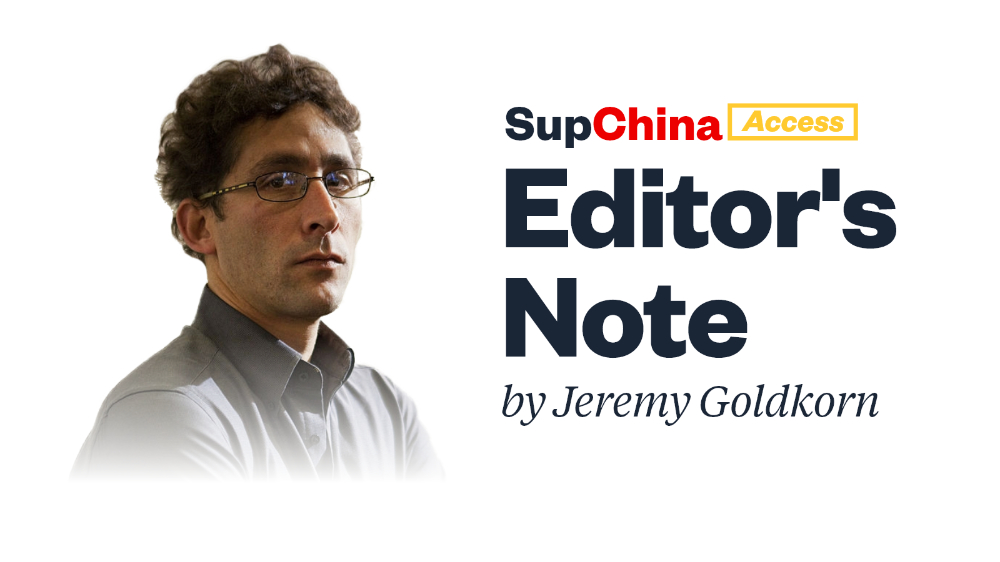Editor’s note for Friday, July 17, 2020
A note from the editor of the The China Project Access newsletter

In today’s newsletter:
- The next Trump travel ban: Chinese Communist Party members?
- Burger King takes a hit from consumer rights TV show
- China to reopen movie theaters next week, with strings attached
- Opinion: Banning TikTok is a terrible idea
- Doomsday scenarios and optimism: Next-generation China scholars on U.S.-China relations
- Our new weekly column: The China Project Eats
- And much more in the links section
My thoughts today:
Things can always get worse. And they will. In January 2019, we laid out several possibilities — we called them “scenarios,” not “predictions” — for the year ahead. One was that China would experience an “epizootic, epidemic, or mass food safety crisis.” Unfortunately, our scenario turned into reality, although reality has turned out to be worse than our rather vanilla scenario: We did not anticipate the global nature of the problem.
I am afraid that things are about to get even worse, much worse, again. Xinjiang has reported five new confirmed cases of COVID-19, and eight new asymptomatic cases. This comes after 149 days of no reported infections in Xinjiang. This is bad news for three reasons:
- The horrifying threat of COVID-19 spreading in Xinjiang’s internment camps for Muslims.
- Even in Xinjiang, one of the most surveilled regions in the world, the coronavirus seems unstoppable.
- How much worse will it be in the U.S., where the federal government seems to have no interest in stopping the pandemic?
There’s more bad news:
- There seems to be a real estate bubble inflating at speed in China, together with news of inflated GDP numbers for China’s second quarter, and there seems to be a lot of fishy activity in China’s stock markets: Despite a significant recent market rally, state-owned funds have begun selling their shares, while a media investigation into Moutai, the world’s most valuable liquor company, precipitated an 8.7% drop on the Shanghai stock market.
- In addition, much of the investing that drove the recent buoyancy on Chinese stock markets has relied heavily on borrowed funds. A week ago, the outstanding balance of margin trading (i.e. funds borrowed from brokers to buy shares) on the Shanghai and Shenzhen stock exchanges hit its highest level since August 2015 at 1.3 trillion yuan ($185.9 billion). But now there is a massive sell off.
- Meanwhile, the U.S. is on track to record as many COVID-19 cases per day as China’s total number of reported cases, and the next two weeks could see huge numbers of America’s most vulnerable people get evicted from their homes, and lose their unemployment benefits.
What does this all mean? I am sorry to be so negative on a Friday — we all could use a stress-free weekend — but the next few months are going to be awful for everyone: for the thousands of people who will die from COVID-19 in America, and also for the million or more people detained in internment camps in Xinjiang. And for everyone around the world that will be made poorer by global economic decline. It’s also going to be bad for the financial markets, for global peace and stability.
It’s going to be bad for you and me. Put your seatbelt on. Also your hard hat, facemask, knuckle dusters, and any other PPE you own. You’re going to need them.
Our word of the day is the shit hits the fan, which is sometimes translated in Chinese as: 狗屎砸了风扇 gǒushǐ zá le fēngshàn — literally, “dogshit hits the fan.”
On July 23, you are invited to join a free half-day conference with panels on electric and autonomous vehicles, connectivity, and urban mobility, brought to you by The China Project and the U.S.-China Series. Click here to register.
—Jeremy Goldkorn, Editor-in-Chief






